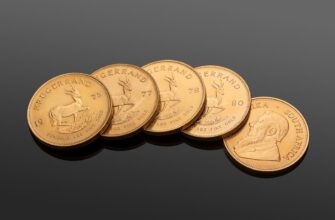- Understanding Crypto Capital Gains Tax 2021: A Comprehensive Guide
- What is Crypto Capital Gains Tax?
- How is Crypto Capital Gains Tax Calculated in 2021?
- Reporting Crypto Capital Gains Tax 2021
- Frequently Asked Questions about Crypto Capital Gains Tax 2021
- Q: Do I have to pay crypto capital gains tax if I don’t cash out?
- Q: What if I have a capital loss?
- Q: What if I can’t remember all my crypto transactions?
Understanding Crypto Capital Gains Tax 2021: A Comprehensive Guide
Cryptocurrency has become a popular investment option, but many investors are unaware of the tax implications. This guide will help you understand crypto capital gains tax 2021, ensuring you stay compliant with the law while maximizing your profits.
What is Crypto Capital Gains Tax?
Crypto capital gains tax is a tax on the profit you make from selling or trading cryptocurrencies. It’s calculated based on the difference between the purchase price (cost basis) and the selling price. If you sell your crypto for more than you bought it for, you have a capital gain. If you sell it for less, you have a capital loss.
How is Crypto Capital Gains Tax Calculated in 2021?
The calculation of crypto capital gains tax in 2021 depends on how long you’ve held the cryptocurrency. Here’s a breakdown:
- Short-term capital gains: If you hold your crypto for one year or less, any profit is considered short-term. Short-term capital gains are taxed as ordinary income, with rates ranging from 10% to 37% depending on your income bracket.
- Long-term capital gains: If you hold your crypto for more than one year, any profit is considered long-term. Long-term capital gains are taxed at lower rates, ranging from 0% to 20%, depending on your income bracket.
Reporting Crypto Capital Gains Tax 2021
To report your crypto capital gains tax 2021, you’ll need to fill out Form 8949 and Schedule D when you file your federal income tax return. Here’s what you need to do:
- Calculate your capital gains or losses for each crypto transaction.
- Fill out Form 8949, listing each transaction, the date acquired and sold, the cost basis, the selling price, and the resulting gain or loss.
- Transfer the totals from Form 8949 to Schedule D.
- Include the total capital gain or loss on your Form 1040.
Frequently Asked Questions about Crypto Capital Gains Tax 2021
Q: Do I have to pay crypto capital gains tax if I don’t cash out?
A: Yes, you’re still required to pay crypto capital gains tax even if you don’t cash out into fiat currency. Trading one crypto for another is also considered a taxable event.
Q: What if I have a capital loss?
A: If you have a capital loss, you can use it to offset your capital gains. If your losses exceed your gains, you can deduct up to $3,000 of the loss from your ordinary income. Any remaining loss can be carried forward to future tax years.
Q: What if I can’t remember all my crypto transactions?
A: It’s crucial to keep detailed records of all your crypto transactions. If you can’t remember them, you may need to use crypto tax software or consult with a tax professional to help you reconstruct your transaction history.
Understanding crypto capital gains tax 2021 is essential for any crypto investor. By staying informed and keeping accurate records, you can ensure you’re compliant with the law and maximize your profits.








